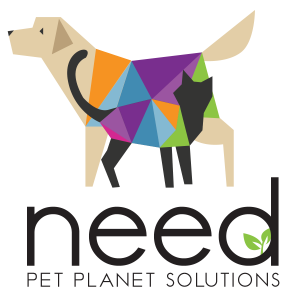Dr. Al Townshend
Commercial cat litter has been around for about 70 years. Before 1950, cat Guardians commonly used sand, dirt, or even ashes in the litter box. Today, commercial litter is made from an almost unlimited number of substances.
When it comes to cancer in cats and the Guardians that care for them, the litter box rarely comes to mind; however, it should be an important consideration. Cancer is all too common in both pets and humans. We don’t have all the answers on how to prevent cancer. However, we do know that we should make every effort to avoid exposure to certain elements found in our environment that can play a role in encouraging or causing some forms of cancer.
Finding the right litter for your kitties can be a daunting task. There is much confusion and misinformation around certain materials used to make litter and little information about potential, unintended contaminates in cat litter.
There are two primary considerations when choosing a cat litter: clumping and non-clumping. Both are intended to absorb and hold moisture and reduce odor. The potential cancer concerns are with the quality of the material/production and the unintended contaminates that may be included.
Quality of Material and Production
Two of the most popular litter materials are clay and silica. When litter is produced using these materials, there is a lot of dust generated. The finished product should contain as little dust as possible, because as cats get in the litter box, they scratch and dig, which stirs up any dust in the material. Inhaling the dust every time they use the litter box increases the risk for problems.
Clay can contain silica and sodium bentonite; both are effective in clumping cat litter and reducing odor. But dust containing these materials can be irritating if inhaled, and chronic irritation or inflammation encourages the formation of cancer. While silica is a safe material, silica dust is a known carcinogen. Litter dust can also be a risk for the Guardian designated to keep the litter box clean.
Unintended Contaminates
In addition to clay and silica-based litter, there are many plants, and wood-based cat litters available. Many believe that these materials are safer and better for the environment; however, it is important to look a little deeper than the primary material.
Corn, corn cobs, wheat, citrus peels, and other plant matter are popular litter material; but all have the potential of containing agricultural herbicides and pesticides that are known carcinogens. Glyphosate or Round-Up is a popular agricultural herbicide and has been designated as a carcinogen.
According to the National Cancer Institute, corn, wheat, and other plant-based litter can contain aflatoxins which are known to be cancer-causing agents.
Wood, recycled wood, and wood-based material like paper are also popular litter materials. Some originate from pulp mills which are known carcinogenic environmental polluters.
Guardians should also be aware that the safe handling of cat feces is essential for their health and safety. Toxoplasmosis, a disease most commonly spread to humans by eating raw or undercooked meat, can also infect a person through exposure to cat feces. A recent study¹ suggests Toxoplasmosis exposure can increase the risk of a particular form of brain cancer.
Determining if a litter is safe and free of these substances can be difficult for the consumer.
There are many things to consider when selecting a kitty litter, clumping or non-clumping, clay, silica or plant material, texture, fragrance, and other considerations specific to your kitty.
When it comes to cancer concerns and doing everything possible to avoid any increased risk of cancer, the goal is to avoid contamination.
- Quality assurance by the manufacturer.
- The product should be as dust free as possible.
- Plant and wood material should be free of aflatoxins, herbicides, and pesticides.
- Wood and newspaper should be free of pulp mill contaminates.
Sometimes that answers are on the bag, but for many of the concerns Guardians will have to rely on the manufacturer for these answers, which is not as easy as one might think.
Guardians can rest assured that the cat litters in the Pet Planet stores have been through our unique, one-of-a-kind Certificate of Trust review that requires complete transparency by the manufactures of all the Pet Planet store products.
Safe and effective cat litters are an essential part of home safety and an integral part of providing a long, happy, and safe life for the pets we cherish.
References:
- Toxoplasma gondiiinfection and the risk of adult glioma in two prospective studies, James M. Hodge Anna E. Coghill Youngchul Kim Noemi Bender Stephanie A. Smith‐Warner Susan Gapstur Lauren R. Teras Tom K. Grimsrud Tim Waterboer Kathleen M. Egan,International Journal of Cancer, January 11, 2021.




